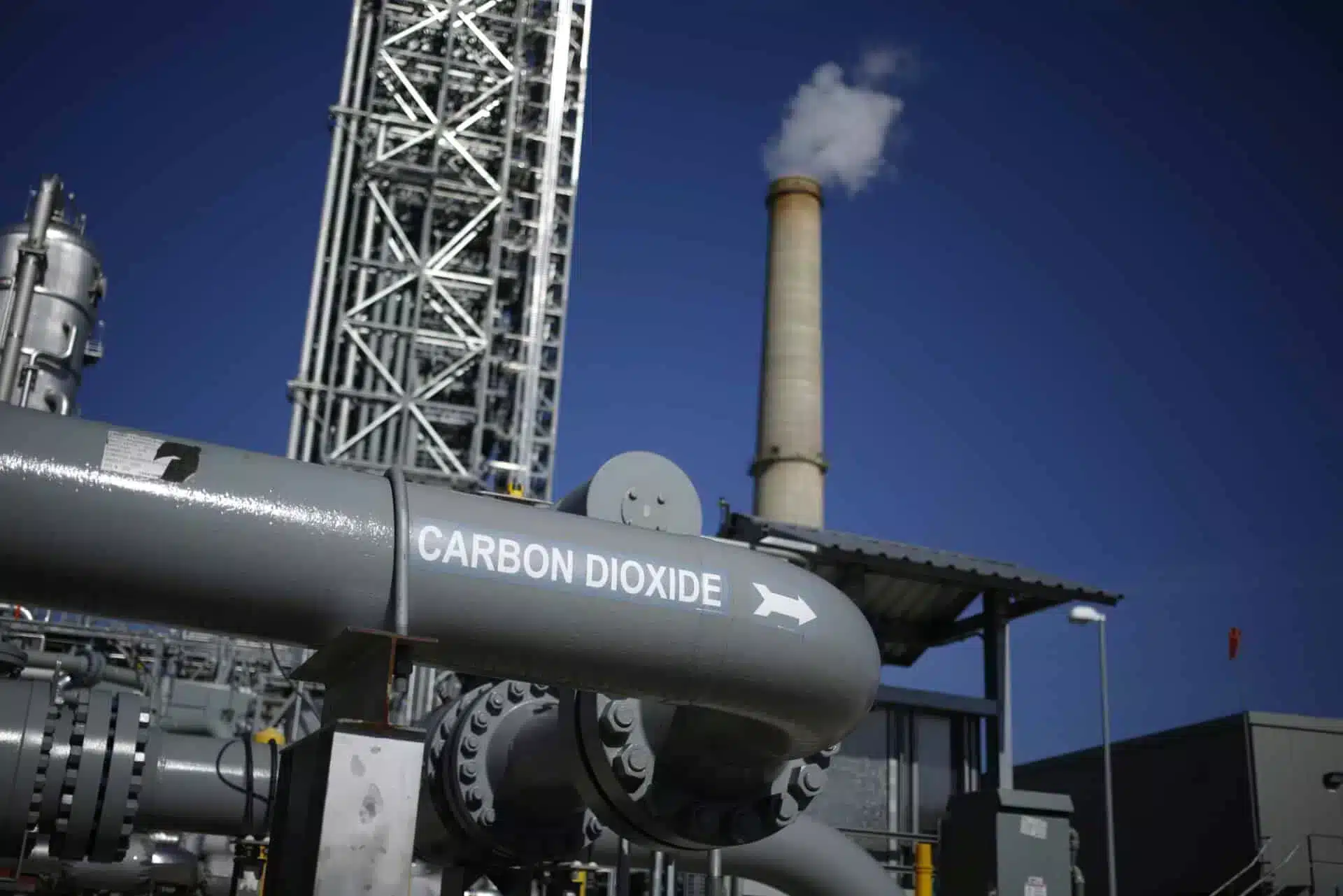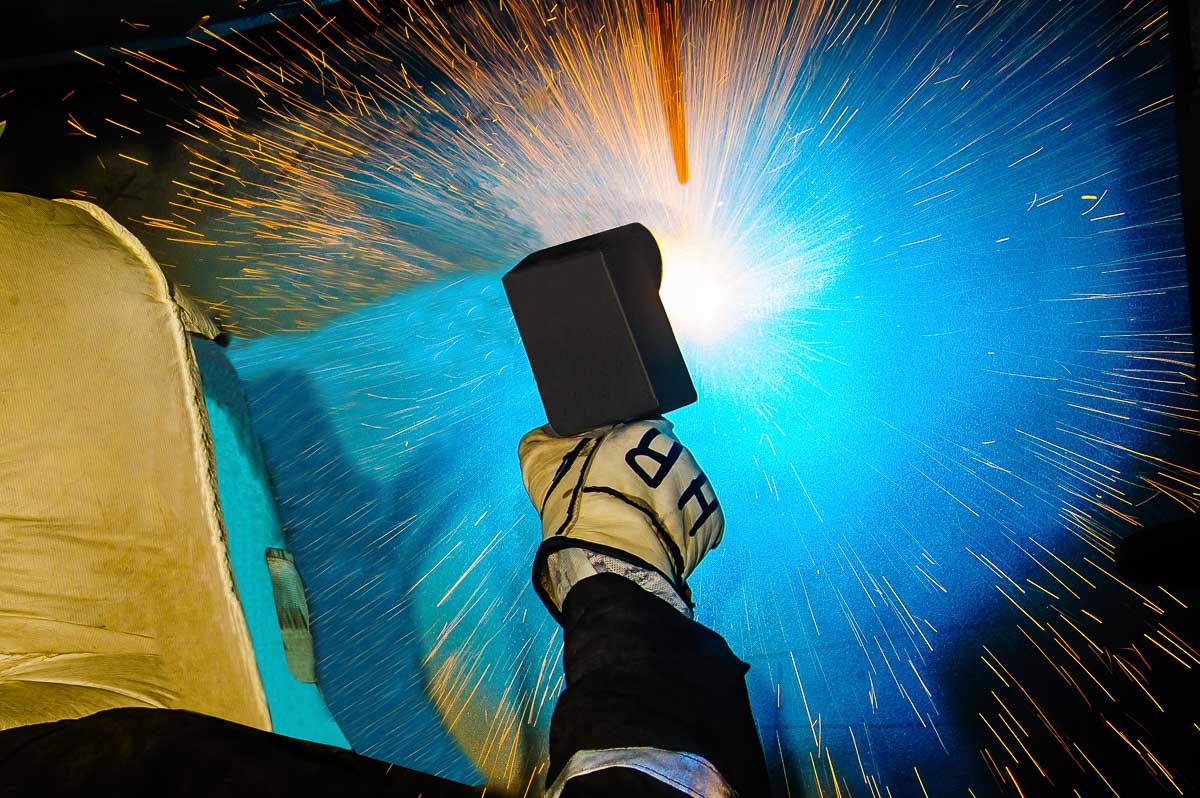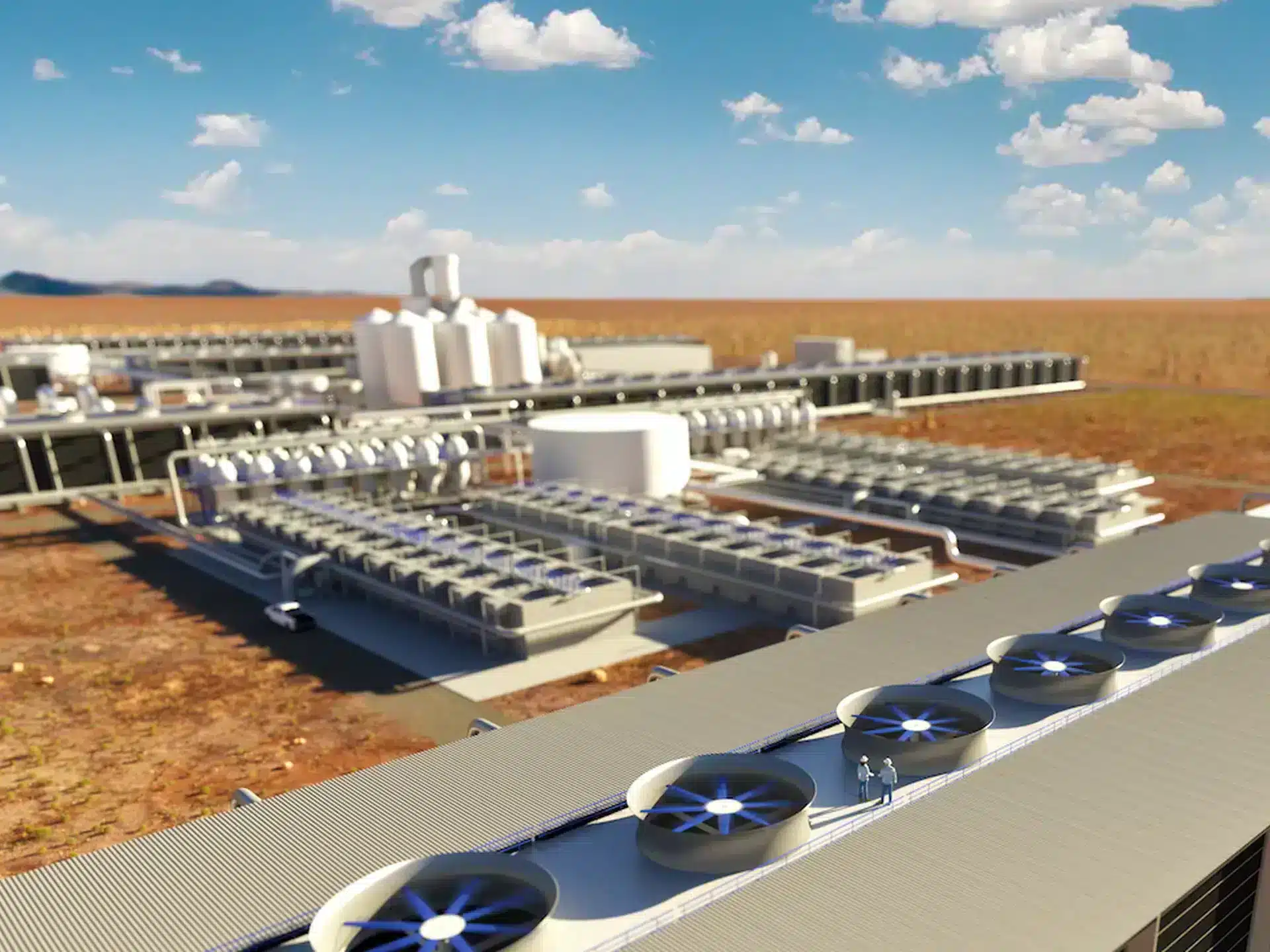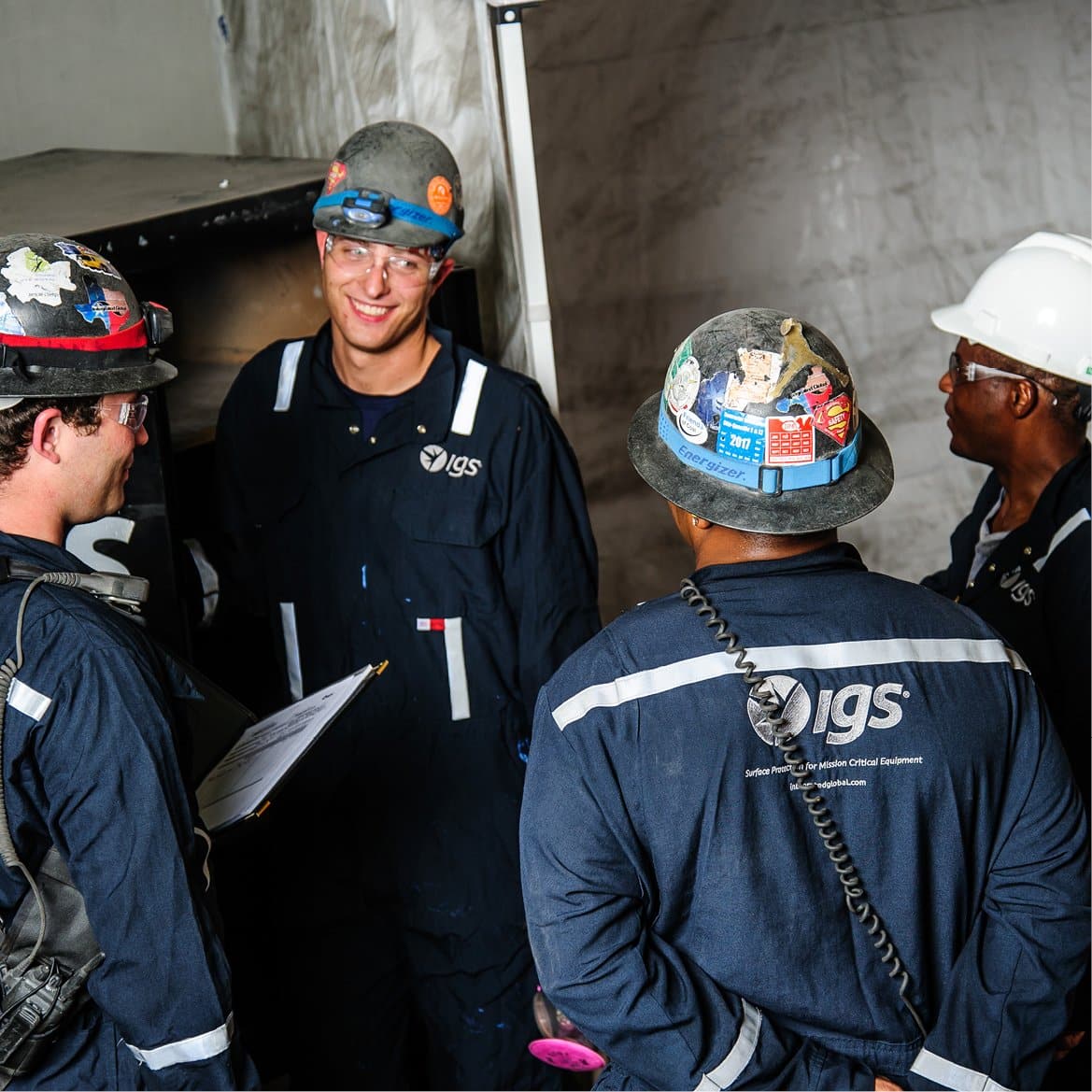Preventing Wet CO₂ Corrosion in Carbon Capture and Storage Project
The critical corrosion challenge of wet CO₂ in process vessels
IGS were engaged when this project faced a critical challenge: preventing wet CO₂ corrosion in process vessels.
A pioneering Carbon Capture and Storage (CCS) project on the US Gulf Coast aimed to capture CO₂ directly from the atmosphere and sell carbon credits to major corporations like Amazon, Google, and United Airlines. The ambitious plan involved constructing around 100 similar facilities over the next decade.
The Wet CO₂ Corrosion Challenge
In CCS systems, CO₂ is captured, compressed, and transported, often coming into contact with moisture. This creates an environment where CO₂ dissolves in water, forming carbonic acid – a major cause of wet CO₂ corrosion. This form of corrosion can severely damage internal piping systems, weld seams, and other metal components, compromising the integrity and safety of the facility.

During the construction of the calciner, a crucial component of the process stream, the stakeholders discovered that the originally specified coating would be inadequate for the pure oxygen environment and high temperatures required. This coating’s predicted failure would have potentially risked accelerated CO₂-induced corrosion, threatening the timeline and safety of the project.
Emergency Material Selection and Mobilization
Facing a potential $500,000 daily loss due to construction delays, the engineering team urgently sought a corrosion-resistant solution. They contacted IGS (Integrated Global Services) on December 18, 2023. Within 24 hours, IGS mobilized on-site, collaborating with the plant’s metallurgy team, the EPC firm, and fabricators to assess the situation.
After a rapid and detailed material selection process, IGS HVTS (High-Velocity Thermal Spray) high nobility alloy cladding was chosen. This solution was ideal for preventing metal wastage caused by wet CO₂ corrosion due to its proven resistance in acidic and caustic environments, particularly in high-temperature process vessels.

Why HVTS High Nobility Alloy Cladding?
HVTS technology provides a protective barrier against corrosive agents, preventing the formation of carbonic acid on metal surfaces. Its benefits include:
- Superior resistance to wet CO₂ corrosion and other acidic environments.
- High durability, ensuring the vessel’s integrity throughout its operational lifespan.
- Versatility in complex areas, such as around internal piping systems and weld seams, which are particularly vulnerable to galvanic and crevice corrosion.
Strategic Execution
The solution required a two-part execution strategy:
- First Mobilization (Dec 27, 2023 – Jan 2, 2024): Addressed critical areas around internal piping systems, completing 80% of the scope by working through the New Year holidays.
- Second Mobilization (Jan 19, 2024): Focused on protecting joining weld seams in subassembly components.
The spray-ability and rapid application speed of HVTS technology were crucial for complex areas where traditional welding was impractical.

Results and Impact
The expedited completion of the corrosion protection strategy prevented significant delays and financial losses. The success of this project showcased the vital role of advanced material selection and quick decision-making in combating wet CO₂ corrosion in CCS systems.
Key Takeaways for Wet CO₂ Corrosion Prevention
This case study demonstrates how proactive corrosion management and innovative solutions like HVTS high nobility alloy cladding are essential for the longevity and success of Carbon Capture and Storage projects. As the CCS industry continues to grow, implementing robust strategies against wet CO₂ corrosion will be key to sustainable operations and safety.
- Material Selection Matters: Using high nobility alloy cladding can effectively resist wet CO₂ corrosion.
- Rapid Response and Collaboration: Fast mobilization and teamwork are crucial for emergency situations in large-scale projects.
- Long-Term Protection: HVTS technology ensures durability and structural integrity, safeguarding against CO₂-induced corrosion.

Four Decades of Global Expertise
With over 40 years of industry experience and a track record of delivering more than 500 projects annually across the globe, IGS stands as the premier provider of surface protection solutions. Contact an IGS Subject Matter Expert for more insights into preventing wet CO₂ corrosion or to learn more about our cutting-edge surface solutions.
On-site Thermal Spray Coating Services from IGS:
Free consultation with an IGS Subject Matter Expert
IGS is here to provide information, answer questions and create an effective solution for your needs.

